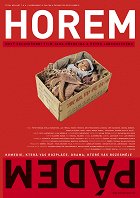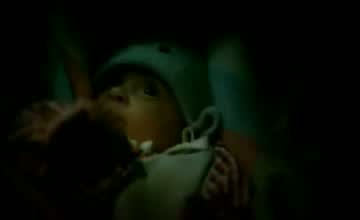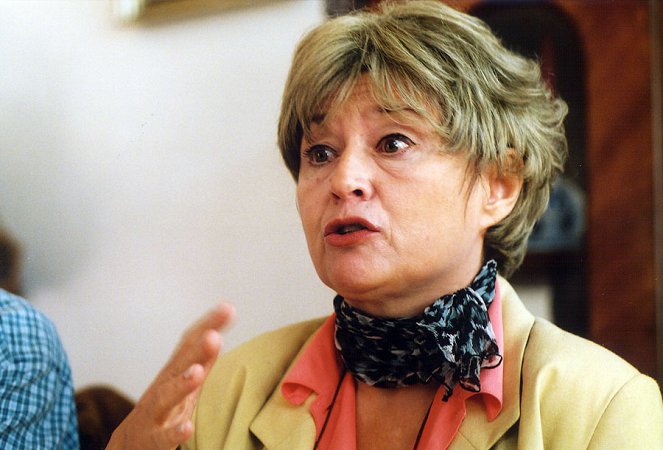Ohjaus:
Jan HřebejkKäsikirjoitus:
Petr JarchovskýKuvaus:
Jan MalířSävellys:
Aleš BřezinaNäyttelijät:
Petr Forman, Emília Vášáryová, Jan Tříska, Ingrid Timková, Kristýna Boková, Jiří Macháček, Nataša Burger, Jan Budař, Zdeněk Suchý, Pavel Liška (lisää)Juonikuvaukset(1)
Three interconnected, tragicomic stories about friendship, losing and finding love, and about parents and children rediscovering each other. A truck loaded with refugees approaches the Czech Republic. After crossing the border, the smugglers leave the new immigrants in the middle of nowhere - all but one of them that is: a newborn is left behind in the truck. Years ago Martin Horecký emigrated after bitter words with his father Otakar. Otakar left his wife for Hana, Martin's former love, and Lenka was born soon after. The family comes together once again when Otakar falls seriously ill. A security guard and his wife can't have kids. The smugglers sell her the newborn refugee. Hana works for the humanitarian organization People in Need. They just happen to be working on a case involving two distraught parents who have lost their baby boy. (jakelijan virallinen teksti)
(lisää)Videot (2)
Arvostelut (5)
Hrebejk cannot completely disappoint, but in this case he had great ideas, along with Petr Jarchovský, but ideas that could not be put together into a functioning whole. Yes, individual scenes are excellent, but as a whole, the film does not have much informative value. The episodes will entertain you, just like the characters. Some quotes from this movie have become popular - right, Bejku? - which is a great recognition for the creators, but the film itself will probably never become a golden gem, as confirmed by its final omission from the Oscar nominations.
()
A strange film that Hřebejk considered to be his best of his time. In it, there’s a strange mix of scenes, situations, over-familiar actors, and bad color filters. However, Miloš Forman praised it, and his brother also appeared in it.
()
It certainly isn’t the best, but it is the most likeable picture from the Hřebejk - Jarchovský duo. Incoherent in terms of story, but individual scenes have something to say about the typical “small-minded Czech" chip on the shoulder, although they say it rather childishly and naively. Good work in acting and technical terms, incomparably far ahead of other Czech productions.
()
Unexpected surge on the brink of exhaustion of a horse. Hřebejk's filmmaker uncertainty and Jarchovský's thematic fragmentation are highlighted again after the unbearably exhausting Pupendo, in proportion to how close they approach the present. Therefore, special fees should be given to actors who, except for a few exceptions, have reached their life maximums. It is even more regrettable that the resulting aftertaste is how mixed everything is and how the symptoms of a social crisis must be forced into pleasantly digestible life problems at any cost.
()
Despite the awkward reception, I have to give Hřebejk one victory... he finally made a film from the Czech present, which I find both funny and true, and it is a film that is telling. It does not drown in self-serving vulgarity (like Angel Exit) or in a violent cool style (Loners and other Ondříček films), it has a solid screenplay, which finally has both a meaningful course and an excellently pointed ending – I am willing to forgive a lot for the bleak ending told with a minimum of means. Forgive what? The absence of a uniting atmosphere... without light nostalgia and melancholy, it’s like Hřebejk could not find his optimal narrative position, and the magic with color filters is thereby futile. Especially somewhere in the middle, when a father and son are reunited, the film is falls apart into long shots and unnecessarily drawn out dialogues. The essential fact is that they are not self-serving and lead somewhere, so momentary suffering and loss of concentration make sense as a result. Having learned from Pupendo, Hřebejk does not make an incoherent band of funny gags at all costs out of Loop the Loop, but he does put catchphrases and anecdotes into the flowing plot. Unfortunately, some sketches protrude roughly and remind us that Jarchovský regularly exaggerates this in an effort to be soulful. Even so, Loop the Loop made me laugh more sincerely than his previous picture. Betting on the strength of the acting worked – I was personally most surprised by Jiří Macháček, whose Bejk is a wonderful piece (and the statement: "There is no God, that's why I'm a fan" captures his entire unhappy insides). The theater actor Forman is also excellent, who does especially well in scenes with Emília Vášáryová... however, I did not find an important character who was walled off by an acting performance. Playing with different genres came out in the soundtrack, the color filters didn't work, but that's besides the point. The most important fact is that this statement about the state of society and the individuals in it, the study of tolerance and the multifaceted reflection on the problem of minorities, has a purpose, content, a message... I can't think of a better word than "meaning". And although the filmmakers have to chew on the huge chunk they have bitten off, often with great difficulty, Loop the Loop is still a fun, quality film...
()



Mainos